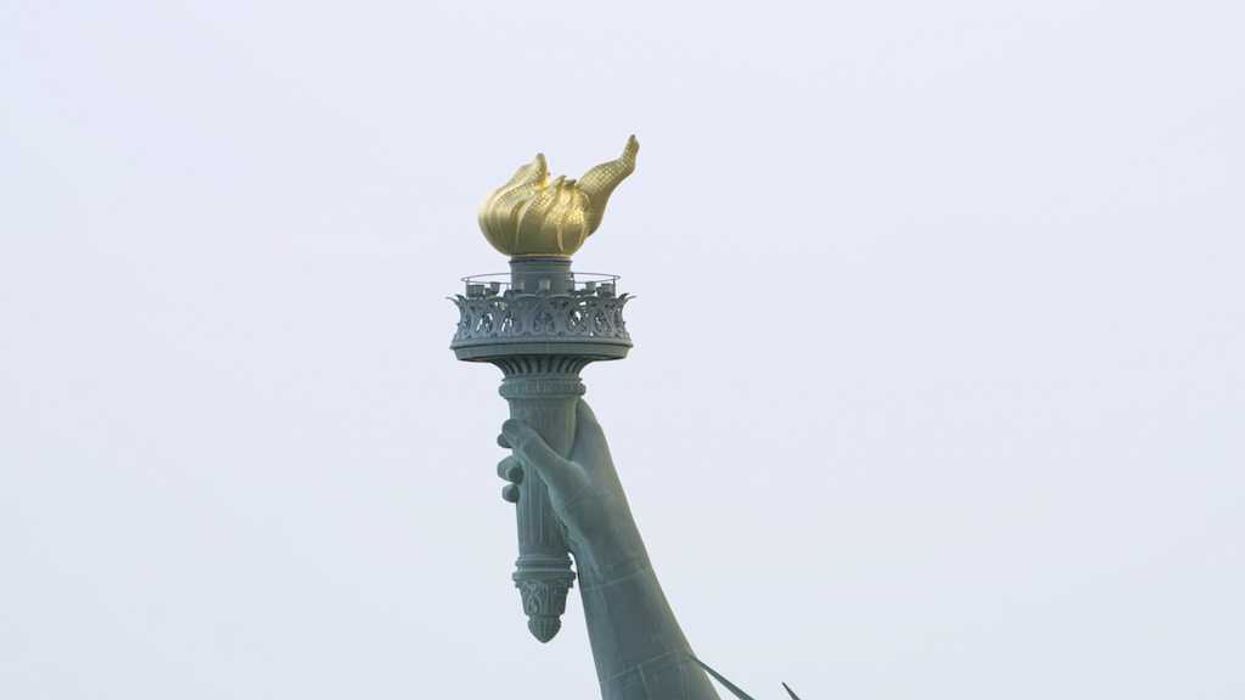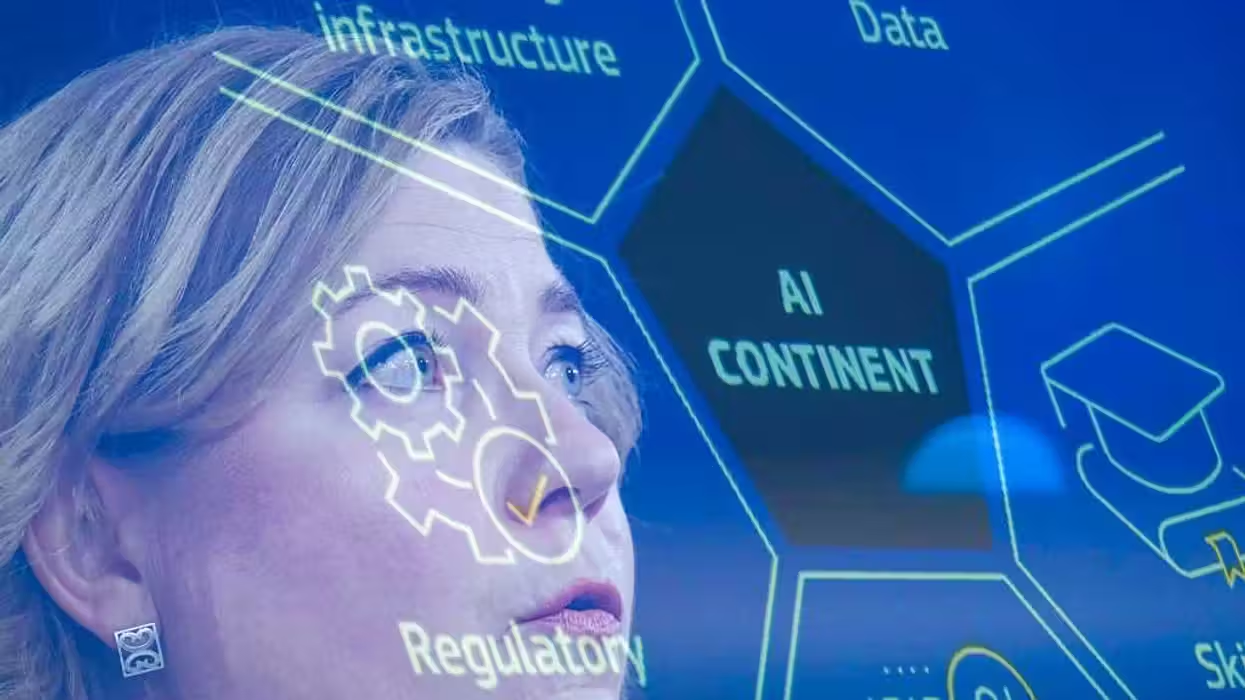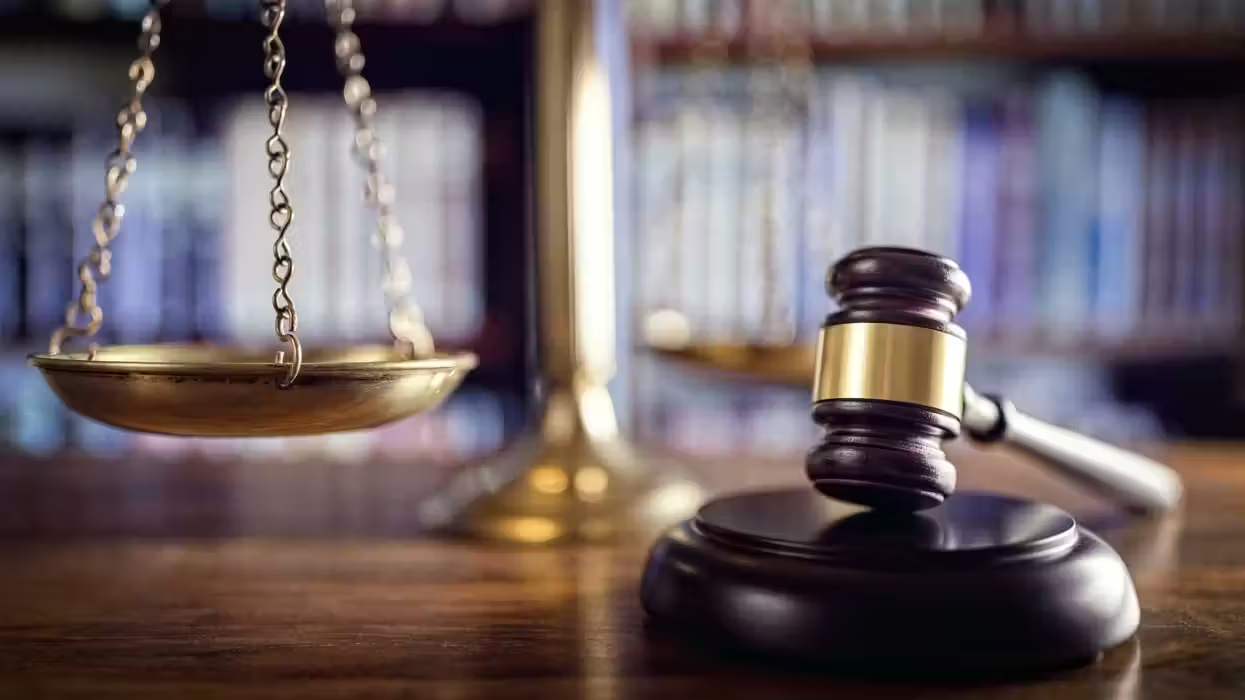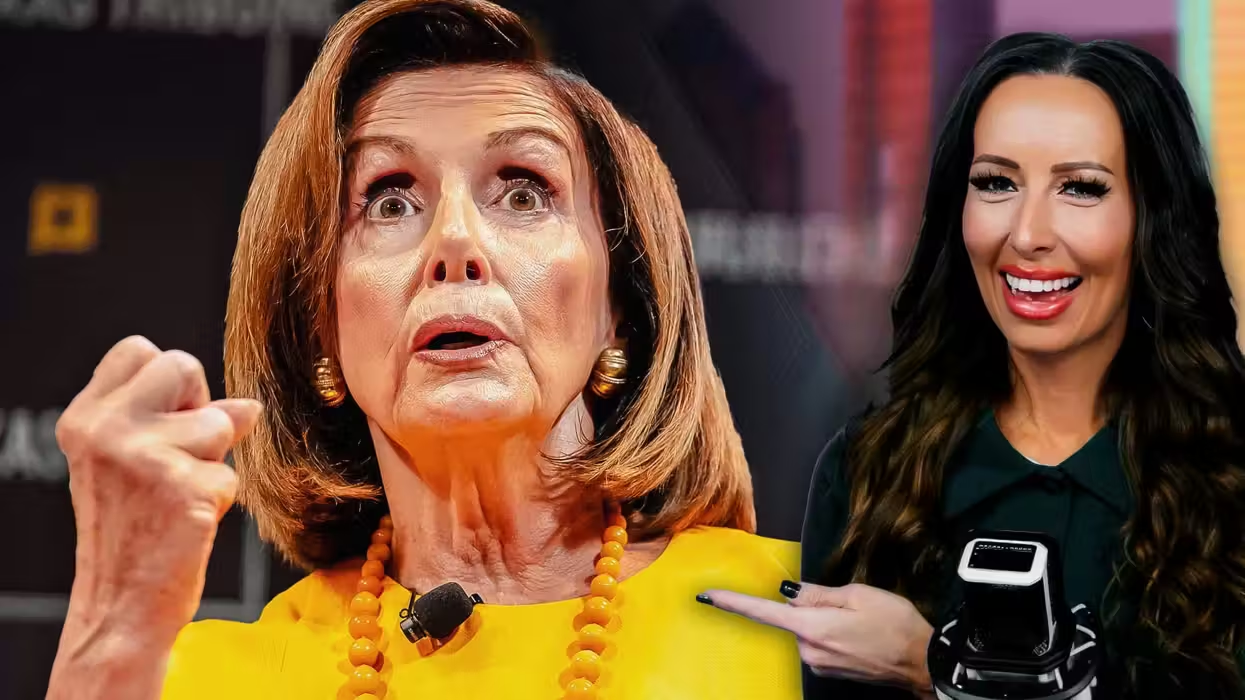
© 2025 Blaze Media LLC. All rights reserved.
The Latest on Ebola: How the NYC Man Tested for the Virus, Experimental Drugs, a Spanish Priest in Isolation and More
August 07, 2014
“It’s absolutely overwhelming."
As the Ebola outbreak, which has killed more than 900 people in West Africa and infected thousands, continues to spread and containment efforts are underway, here is some of the latest information you might want to know.
 A man and woman taking part in a Ebola prevention campaign holds a placard with an Ebola prevention information message in the city of Freetown, Sierra Leone, Wednesday, Aug. 6, 2014. The World Health Organization has begun an emergency meeting on the Ebola crisis, and said at least 932 deaths in four African countries are blamed on the virus, with many hundreds more being treated in quarantine conditions. (AP/ Michael Duff)
A man and woman taking part in a Ebola prevention campaign holds a placard with an Ebola prevention information message in the city of Freetown, Sierra Leone, Wednesday, Aug. 6, 2014. The World Health Organization has begun an emergency meeting on the Ebola crisis, and said at least 932 deaths in four African countries are blamed on the virus, with many hundreds more being treated in quarantine conditions. (AP/ Michael Duff)
- New York man tests negative: The Centers for Disease Control and Prevention said in a statement Wednesday, according to the Washington Post, that the tests on a man in New York City for the Ebola virus came back negative. He was in “stable condition, is improving and remains in the care of our physicians and nurses.”
 A male patient with a high fever and gastrointestinal symptoms was tested for the at this New York City hospital earlier in the week, but by Wednesday the test came back negative. (AP Photo/John Minchillo)
A male patient with a high fever and gastrointestinal symptoms was tested for the at this New York City hospital earlier in the week, but by Wednesday the test came back negative. (AP Photo/John Minchillo)
- What's the 'responsible thing to do'?: The use of an experimental drug to treat two Americans diagnosed with Ebola is raising ethical questions about who gets first access to unproven new therapies for the deadly disease. The World Health Organization and medical ethicists next week will discuss what to do with such drugs and other supplies that could become available. "We need to ask the medical ethicists to give us guidance on the the responsible thing to do," Dr. Marie-Paule Kieny, assistant director-general for the WHO, said in a statement.
- Drug given to American Ebola patients pushed to move faster: The New York Times reported that Mapp Biopharmaceuticals, whose drug ZMapp was given to two U.S. missionaries infected with the virus before they returned to the United States, is in discussions with regulators to possibly increase production. “It’s absolutely overwhelming,” Larry Zeitlin, the president of the California-based company, told the Times. “We are discussing with the [Food and Drug Administration] the right path to make the drug available to people as quickly and safely as possible." While the two American patients are still in isolation at an Atlanta hospital, they were said to have improved after receiving the medication for the disease, which has no known vaccine or cure yet.
- Outbreak shadows summit: While many issues were discussed at the U.S.-African Summit this week in Washington, D.C., Ebola was, of course, a topic as well. President Barack Obama acknowledged the outbreak in his remarks, saying that the U.S. is encouraging public health systems in Africa to focus its efforts on rapidly identifying and isolating patients.
 A woman washes her hands before she is allowed to enter a building as part of a Ebola prevention campaign in the city of Freetown, Sierra Leone, Wednesday, Aug. 6, 2014. Three leading experts on the Ebola virus said Wednesday that experimental drugs should be provided to Africa, and that if the deadly virus was rampant in Western countries it would be �highly likely� that authorities would give people access to the medications.(AP/ Michael Duff)
A woman washes her hands before she is allowed to enter a building as part of a Ebola prevention campaign in the city of Freetown, Sierra Leone, Wednesday, Aug. 6, 2014. Three leading experts on the Ebola virus said Wednesday that experimental drugs should be provided to Africa, and that if the deadly virus was rampant in Western countries it would be �highly likely� that authorities would give people access to the medications.(AP/ Michael Duff)
- Priest in isolation in Spain: A Spanish missionary priest, 75-year-old Miguel Pajares, who tested positive for the Ebola virus, was in stable condition at a Madrid hospital on Thursday after being evacuated from Liberia, health officials said. Juliana Bohi, an Equatorial Guinean nun with Spanish nationality who worked with Pajares in Liberia, was also in isolation, but tests later revealed she didn't contract the virus.
 An ambulance transporting Miguel Pajares, a Spanish priest who was infected with the Ebola virus while working in Liberia, leaves the Military Air Base of Torrejon de Ardoz, near Madrid, Spain, Thursday, Aug. 7, 2014 after his landing in Spain.(AP/Daniel Ochoa de Olza)
An ambulance transporting Miguel Pajares, a Spanish priest who was infected with the Ebola virus while working in Liberia, leaves the Military Air Base of Torrejon de Ardoz, near Madrid, Spain, Thursday, Aug. 7, 2014 after his landing in Spain.(AP/Daniel Ochoa de Olza)
- Quarantine enforcement trumps civil liberties: Liberian President Ellen Johnson Sirleaf said that some civil liberties may be suspended as troops are being sent out to enforce quarantine efforts in communities where the Ebola virus is spreading.
- Pentagon's test to be deployed: According to Reuters, a diagnostic test developed by the Pentagon can now be used to see if patients have the Ebola virus or not. The news outlet reported that the FDA is allowing the test to be used overseas on members of the military and other emergency responders. The benefit of the test is that it could diagnose an infection before symptoms become apparent.
—
The Associated Press contributed to this report.
Want to leave a tip?
We answer to you. Help keep our content free of advertisers and big tech censorship by leaving a tip today.
Want to join the conversation?
Already a subscriber?
more stories
Sign up for the Blaze newsletter
By signing up, you agree to our Privacy Policy and Terms of Use, and agree to receive content that may sometimes include advertisements. You may opt out at any time.
Related Content
© 2025 Blaze Media LLC. All rights reserved.
Get the stories that matter most delivered directly to your inbox.
By signing up, you agree to our Privacy Policy and Terms of Use, and agree to receive content that may sometimes include advertisements. You may opt out at any time.





